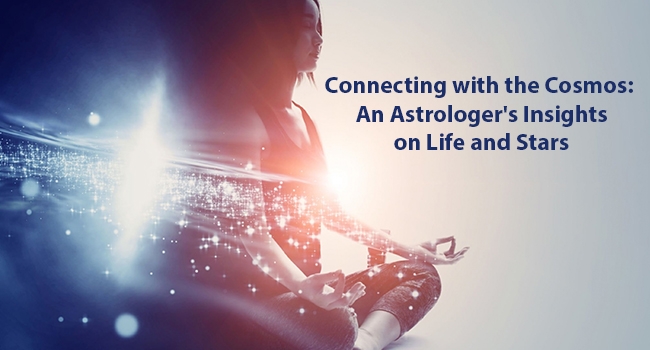
In this modern world, as we become more connected through technology, there is a growing longing to connect with something greater, something beyond ourselves. For centuries, humans have looked up to the stars in awe and wonder, seeking answers about life and destiny. Astrology, the study of celestial bodies' positions and their influence on human affairs, has been a significant part of many cultures and civilizations. In this article, we will explore the fascinating world of astrology, its historical significance, its connection to our lives, and how it continues to captivate and intrigue people across the globe.
1. The History of Astrology
1.1 Ancient Beginnings
Astrology's origins can be traced back thousands of years to ancient civilizations like the Babylonians, Egyptians, and Greeks. They observed the celestial bodies' movements and correlated them with earthly events, believing that the stars held valuable insights into human fate.
1.2 Renaissance and Revival
During the Renaissance period, astrology experienced a resurgence in Europe. Scholars and philosophers studied astrological principles, integrating them into various disciplines. Although it faced criticism during the Age of Enlightenment, astrology managed to survive and evolve into the form we know today.
2. The Basics of Astrology
2.1 The Zodiac Signs
The zodiac consists of twelve signs, each representing specific personality traits and characteristics. From adventurous Aries to compassionate Pisces, each sign influences individuals born under them.
2.2 The Elements and Modalities
Astrology categorizes the signs into four elements – Fire, Earth, Air, and Water – and three modalities – Cardinal, Fixed, and Mutable. These combinations further define a person's nature and behavior.
2.3 The Birth Chart
A birthday chart, also known as a natal chart, is a personalized map of the celestial bodies' positions at the time of an individual's birth. It serves as a unique blueprint that astrologers interpret to understand a person's strengths, weaknesses, and life path.
3. Astrology and Personal Growth
3.1 Self-Discovery and Awareness
Astrology can be a powerful tool for self-discovery. By understanding their birth chart, individuals gain insights into their inner motivations and potential areas for personal growth.
3.2 Navigating Relationships
Talk to Astrologer also plays a role in understanding relationships. Compatibility between zodiac signs is often explored to comprehend how individuals interact and relate to one another.
3.3 Embracing Change
Astrology encourages individuals to embrace change and cycles in their lives. By recognizing the planetary transits and progressions, one can prepare for significant shifts and opportunities.
4. Debunking Misconceptions
4.1 Scientific Standing
Astrology is often criticized for lacking scientific evidence. While it operates on a different plane from traditional science, its impact on individuals' lives and the cultural significance cannot be denied.
4.2 Free Will vs. Determinism
One common debate in astrology is the notion of free will versus determinism. Critics argue that astrology undermines free will, while believers assert it provides guidance for making informed choices.
5. Astrology Today
5.1 Popularity and Online Presence
In the digital age, astrology has witnessed a surge in popularity, especially on social media platforms and astrology websites. Many people turn to astrology for daily guidance and horoscopes.
5.2 Professional Astrologers
Chat with astrologer has also paved the way for professional astrologers who offer personalized readings, workshops, and consultations to help individuals navigate life's complexities.
5.3 Ethical Considerations
As astrology gains traction, ethical considerations arise. Responsible astrologers emphasize empowering clients rather than promoting dependency.
Astrology continues to be a subject of fascination and intrigue, connecting humanity with the cosmos. Whether you see it as a guiding light or a mere curiosity, astrology's enduring presence in our lives highlights our innate desire to explore the unknown and seek meaning beyond the material world.
While astrology operates outside the realm of traditional science, it has been a part of human history for millennia and continues to resonate with many individuals.
Astrology provides insights into potential influences and trends but does not offer precise predictions of specific events.
No, horoscopes vary based on the astrologer's interpretation, the individual's birth chart, and the specific planetary alignments.
No, astrology considers the positions of all celestial bodies at the time of birth, providing a more comprehensive understanding.
Astrology can offer valuable insights and guidance, but ultimately, it is up to individuals to make choices and shape their destinies.